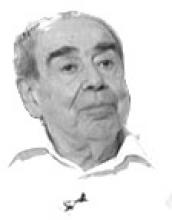You are here
Lest we forget — Christian Palestinians of Jerusalem
Jul 15,2017 - Last updated at Jul 15,2017
In my memoirs “Jerusalemites... a Living Memory”, I made reference to Talbiya quarter in West Jerusalem, which in the 1930s and 1940s of the last century, was the most fashionable Christian Arab quarter, outside the Old City, along with Qatamon and upper and lower Baqa.
They had been a thriving, sophisticated and cohesive community of Arab Palestinian Christians, numerically roughly on par with their Arab Muslim compatriots, and living side by side in neighbourly amity and friendship.
I know many of those families and had close friendships with them.
I shall give here a cross-sectional spectrum of them, to show how such a public-spirited, educated, peace-loving and civilised community was decimated overnight and its members dispersed around the globe, with a conspiracy of silence over their fate and that of their Muslim compatriots in greater Jerusalem in May 1948.
Since Israel’s occupation of East Jerusalem in June 1967, there has been a further and much accelerated diminution of the Arab Christian presence in Jerusalem.
Let me mention some of those prominent Christian families and distinguished individuals.
I had a close friendship with the Tannous family, and their home in Talbiya was one of the most elegant.
Suleiman Tannous was a highly successful businessman and representative of General Motors in Palestine and Jordan; his son George was my room-mate at the American University in Beirut (AUB).
Then there was Dolly, his charming wife, Fuad, his brother, and his wife Tania.
lzzat Tannous, a venerable doctor, was for many years a recognised representative of Palestine at the United Nations.
One of the senior members of the Farraj family, Yacoub Farraj, was deputy mayor of united Jerusalem in the 1930s, and Fuad Farraj was a Cabinet colleague in Jordan in the 1960s.
The Jamal family, Teddy and Eddy, ran a thriving business.
I remember, too, the family of the late Edward Said, the outstanding author and linguist, who wrote, among his other works, “Out of Place”, a most readable autobiography.
I remember very well Bulos Saeed’s library and stationery store at Bab Al Khalil, which was the main shopping centre for Arabs and Jews in the 1930s.
Anton Attallah, as I mentioned earlier, was a distinguished judge and later foreign minister of Jordan, while Munir Attallah was a leading businessman in Jordan, married to the charming Odette.
A member of the Attallah family, l am told, had been a patriarch of the Orthodox Church 500 years ago, before it was taken over by the Greek hierarchy under the Ottoman regime.
Then there was the Senunu family, one of whose sons had served as chief of staff in President George H. W. Bush’s White House.
From the Hanania family, Anastass Hanania was a judge who later served as Jordan’s minister of finance and ambassador to London, and his son Daoud Hanania, former head of the King Hussein Medical City, was a pioneer in open-heart surgery in the Arab world.
The Deeb family, under the British mandate, had the Dead Sea concession for extracting salt.
Gabi and Raymon Deeb were tennis champions. My rivalry with Raymon on the tennis courts of the Jerusalem YMCA was intense.
The Palestine tennis champion for three consecutive years was Roland Mayo, although I managed to beat him once in a semi-final.
As for the Sakakini family, its head, Khalil, was one of the foremost educationalists in Jerusalem, and his books are still being taught at schools.
I also knew his son Sari and his daughter Hala, in the celebrated socialite circle of Katy Antonius, who did so much for the cause of Palestine.
Emil Ghouri, secretary-general of the Arab Higher Committee, represented Palestine at the United Nations during the debate on partition in 1947.
Sami Khouri was a highly accomplished surgeon and a close friend. Born in Nablus, he was brought up in Jerusalem, attending St George’s School.
He later graduated from the AUB and served as chief surgeon at the Augusta Victoria Hospital on the Mount of Olives.
Shafeeq Mansour was head of the boys’ department at the YMCA, where I was one of l00 founding members.
Henry Qattan was distinguished jurist who authored several books on the question of Palestine from the vantage point of international law.
Then there was the Majaj family, with Amin Majaj, who served as mayor of Jerusalem in the aftermath of unity with Jordan in 1949-1950.
Yacoub Juri served as UN resident representative to Iraq, the Caribbean and other countries.
Yusuf Beidas was a brilliant man who, immediately after the catastrophe (Nakba) of 1948, established Intra Bank, one of the foremost in the Middle East in the 1950s and early 1960s.
Hostile forces in Lebanon conspired to bring down the bank in l966, notwithstanding its considerable assets which by far outweighed its liabilities.
There had been a run on the bank, which caused a cash shortage, and the Central Bank allowed Intra to go under.
The Halabi family was in the pharmaceutical business, and I remember distinctly as a child the Anton Halabi pharmacy at Bab Al Amud (Damascus Gate), one of the entrances to the Old City.
lssa Nakhleh, a distinguished lawyer, who represented Palestine for many years at the UN, authored a unique compendium on the Palestine disaster, akin to an encyclopaedia.
This community of diverse skills and achievements was uprooted on May 15, 1948 by a war machine that walked over their militarily naked quarters, and defenceless citizenry.
Each one of them had to seek a future in other lands and begin life anew.
The writer is a former foreign minister, Royal Court chief, and senator. He contributed this article to The Jordan Times.













